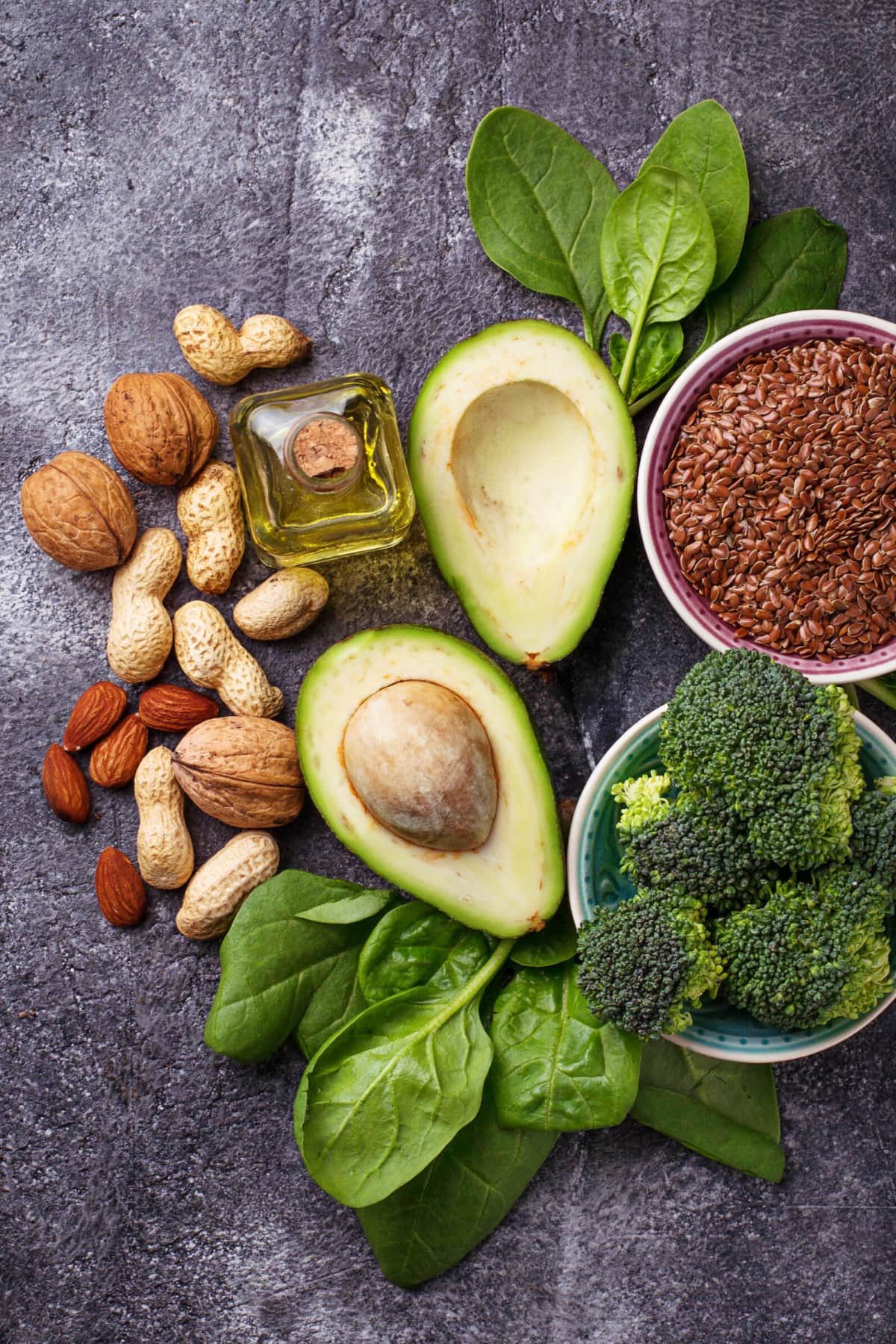[The Vegan’s Guide To Omega-3s: Plant-based Sources]

Executive Summary

This comprehensive guide explores the importance of omega-3 fatty acids for vegans and delves into the best plant-based sources to ensure optimal intake. We’ll demystify the different types of omega-3s, clarify common misconceptions, and provide actionable tips for incorporating these essential nutrients into your vegan diet.

Introduction
As a vegan, you might wonder about obtaining sufficient omega-3 fatty acids, often associated with fish and seafood. While animal sources are rich in omega-3s, a well-planned vegan diet can easily meet your needs. This guide will equip you with the knowledge and resources to confidently navigate the world of plant-based omega-3s, promoting overall health and well-being.
Why Are Omega-3s Important?
Omega-3 fatty acids are crucial for various bodily functions. They play a vital role in:
- Brain Health: Omega-3s, particularly DHA, are essential for brain development, cognitive function, and mood regulation.
- Heart Health: They help lower triglyceride levels, reduce blood pressure, and improve heart rhythm, promoting cardiovascular health.
- Joint Health: Omega-3s can reduce inflammation, potentially alleviating symptoms of conditions like rheumatoid arthritis.
- Vision Health: DHA is essential for maintaining healthy vision, especially during early development.
- Skin Health: Omega-3s contribute to healthy skin hydration and reduce inflammation, promoting a clear complexion.
Understanding Omega-3 Fatty Acids
Let’s break down the different types of omega-3s:
- ALA (Alpha-linolenic Acid): This is the plant-based omega-3 found in sources like flaxseeds, chia seeds, and walnuts. Your body converts ALA into EPA and DHA, but the conversion rate can be limited.
- EPA (Eicosapentaenoic Acid): Primarily found in fatty fish, EPA is involved in regulating inflammation and supporting heart health.
- DHA (Docosahexaenoic Acid): This crucial omega-3 is crucial for brain, vision, and heart health. It’s found in high concentrations in fatty fish.
Plant-Based Sources of Omega-3s
Here are the best plant-based sources of omega-3s:
Flaxseeds
Flaxseeds are a powerhouse of ALA, providing a generous amount per serving. They’re versatile and can be incorporated into:
- Ground Flaxseed: Add to smoothies, yogurt, or oatmeal for a boost of omega-3s.
- Flaxseed Oil: Use in dressings, marinades, or drizzled over salads for a flavorful and nutrient-rich addition.
- Flaxseed Meal: Use as a binder in baked goods or as a substitute for breadcrumbs in vegan recipes.
Chia Seeds
Chia seeds are another excellent source of ALA and offer a variety of health benefits. Enjoy them in:
- Chia Pudding: Soaked in plant-based milk overnight, chia seeds create a creamy pudding that’s high in omega-3s and fiber.
- Smoothies: Add a tablespoon or two to your favorite smoothies for a boost of nutrients.
- Baked Goods: Incorporate chia seeds into muffins, bread, or cookies for added texture and omega-3 content.
Walnuts
These tasty nuts are a good source of ALA and offer other beneficial nutrients. Enjoy walnuts as:
- Snacks: Walnuts make a delicious and nutritious snack on their own or paired with fruits and vegetables.
- Toppings: Sprinkle walnuts over salads, yogurt, or oatmeal for a satisfying crunch.
- Salad Dressings: Use walnut oil as a base for homemade dressings, adding a nutty flavor and omega-3s.
Algae Oil
Algae oil is a unique plant-based source of EPA and DHA, bypassing the conversion process from ALA. It’s a valuable option for vegans looking for a direct source of these essential omega-3s.
- Supplements: Algae oil is available in capsules and liquid forms, offering a convenient way to supplement your diet.
- Fortified Foods: Some plant-based milk, yogurt, and other food products are fortified with algae oil to increase their omega-3 content.
Common Vegan Omega-3 Questions
1. Do I need to take omega-3 supplements if I’m vegan?
While a well-planned vegan diet can provide sufficient omega-3s, supplementation may be beneficial for individuals with specific needs or limited access to diverse plant-based sources. Consult a healthcare professional to determine if supplementation is right for you.
2. What about the conversion of ALA to EPA and DHA?
The conversion of ALA to EPA and DHA can be limited in humans. While the body can convert some ALA, supplementing with sources directly containing EPA and DHA, like algae oil, may be more effective in meeting specific needs.
3. How much omega-3 should I aim for daily?
The recommended daily intake of ALA for adults is 1.6 grams for men and 1.1 grams for women. However, individual needs may vary depending on factors like health status, activity level, and specific health goals.
Conclusion
Maintaining a healthy intake of omega-3s is crucial for everyone, regardless of their dietary choices. Vegans have a wide array of plant-based options to ensure they meet their needs, from flaxseeds and chia seeds to walnuts and algae oil. By incorporating these sources into your diet and potentially considering supplementation, you can reap the numerous health benefits associated with omega-3s and thrive as a healthy vegan.
Keywords:
- Vegan Omega-3s
- Plant-Based Omega-3
- Flaxseeds
- Chia Seeds
- Walnuts
- Algae Oil